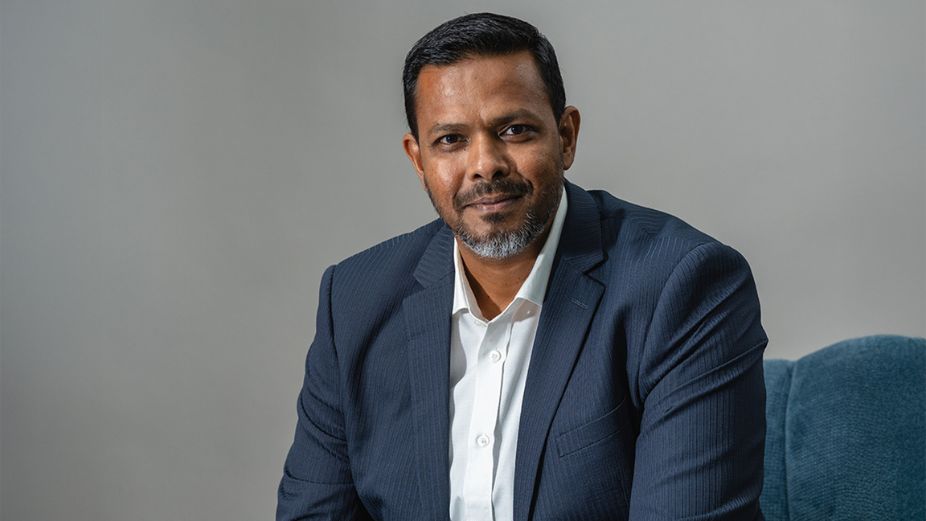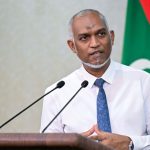
At the helm of First National, Hassan Ziyath is helping shape a more agile, investment-ready financial landscape in the Maldives. Since the founding of the company in 2021, he has led its evolution into a dynamic player offering structured financing solutions, corporate advisory services, and capital market access tailored to the local context.
Ziyath’s career spans decades of experience in public finance and capital markets, culminating in a vision to bridge global financial instruments with homegrown opportunity. Under his leadership, First National aims to reimagine how Maldivian businesses access growth capital, with an emphasis on financial literacy, transparency, and long-term value creation.
As the country looks to deepen its private sector capabilities, Ziyath sees First National as more than a financier; it’s a platform for transformation. We sat down with him to discuss the company’s origin story, its goals for the coming years, and how it plans to unlock capital for Maldivian enterprises.
You have an extensive background in finance and auditing. What inspired you to co-found First National at this point in your career?
First National embodies a vision of like-minded individuals with collective experience of over 30 years in accounting, finance and investment management and we all have been working together in different capacities. As I concluded almost 7 years of my position as the Auditor General, it was the right point in time for me to take on the new challenge of establishing a corporation to contribute to the financial sector development of the Maldives, especially the Capital Markets together with the other three co-founders of First National.
Our thinking is that the Capital Markets can be developed further, making it easier for businesses to raise capital and at the same time provide incentives to save for the future. We see lots of opportunities in product development as well as capital markets infrastructure development in this space.
Looking back at when First National was founded in 2021, what was the gap in the financial services landscape that you and your team sought to address?
Rather than trying to fill a gap in the financial services landscape, we wanted to contribute to the development of the capital markets. The development of the capital markets are essential for allocating capital to most effective use and at the right price. Currently, the financial system is very much monopolistic in nature and therefore, not efficient. For example, the market rates/prices do not necessarily represent the risk and return profile of the borrower or the project for which finance is sought. We believe that corporations with good business cases, adequate operating history, financial strength and strong governance should be able to obtain finance at rates appropriate for their risk profile. This can only be made possible through the capital markets.
We also saw the opportunities in the transition of the first generation of business to the second generation as well as in the growing professional class in the Maldives. In addition to corporate finance, we saw opportunities in wealth management as well professional asset management. While we focus on developing our product portfolio, we dedicate lots of time in building talent at First National.
How has your experience as Auditor General shaped the way you approach running a private sector financial institution today?
I believe it’s all about the soft skills that matter to become effective in leading an organisation. Being in the state sector and leading a venerable institution of the state have given me the opportunity to manage diverse teams and build networks. First National being a financial services firm has its own internal complexities to manage as well as external complexities; building trust with the public, the business community as well as working hand-in-hand with the policy and regulatory institutions. Even though the private sector entities operate in a commercial setting, applying and adopting the experiences from the state sector, especially managing people, are essential to run a commercially oriented entity.
First National’s vision includes integrating the Maldivian economy into the global financial system. What are the biggest challenges standing in the way of that goal?
Let me make a point on this first, the Maldives is promoted overseas as a holiday destination and we have been very successful in this. We have not been able to capitalise on the destination effect in attracting investment to the Country successfully. However, we believe the Maldives is a great place to invest as well. As a developing economy, the returns on investment in Maldives are very attractive and we dont believe that there is above average risk in investing in Maldives too. The ground reality is far better than the noise.
While I am very optimistic, I would like to make a note also that there are numerous challenges in integrating Maldives economy to the global financial system, which include the regulatory obstacles, infrastructure issues, lack of awareness on the working of the international financial markets. We are working to address these challenges through dialogue with policy and regulatory bodies, reaching out to the players in the international financial system, producing our own research so that it becomes easier for our business to tap into international financial markets in raising finance. If our story is told clearly and when we continuously engage the policy and regulatory institutions as well as international financial market entities, I believe a number of local businesses can take advantage of the international financial markets. We need to think global even in finance.
Capital markets are still relatively young in the Maldives. What would you say is misunderstood about this space among the local business community?
The capital markets remained inactive although it has been sometimes since the securities act came into force. The inactivity is mainly due to lack of private sector entities acting as market makers. Our financial system is a bank-based system and the issuance of securities to raise finance is a new idea for most local businesses. Issuance of securities is also a more complex form of finance raising process than seeking a bank loan. The misunderstanding is mainly due to lack of awareness simply because there aren’t enough local firms promoting the capital markets. We entered this market with a very clear understanding of the challenges, and we reached out to the potential clients. We are very much humbled by the trust placed in us by very reputable business in the Maldives and took the lead in the development of the capital markets, especially the corporate bond markets, and opened a whole new market for businesses to raise finance.
You’ve witnessed firsthand the economic and political evolution of the Maldives. In your view, what is the most overlooked lesson from that transformation?
I will focus on the financial markets to answer this question. We believe that we have a challenging public finance issue. I think the best lesson we should learn is that we should let the market forces allocate capital and that less government intervention in markets would result in better outcomes in the long-run. If we have efficient financial markets, I believe it’s not only the private sector that would benefit in raising finance, but also the government sector as well. We could have brought a lot of allocative efficiency and reduced wasteful spending if government’s had resorted to market based financing to meet the deficits.
You’ve worked in both the public and private sectors. Where do you believe real change happens faster, within institutions or through entrepreneurship?
This is an interesting question. In my view, for real change to happen it requires two things; a clear vision and unwavering commitment to endure the pain of the process of change. It’s not a function of institutions or entrepreneurship. As leaders, one should acknowledge that change won’t be easy and that it requires tough skin to endure the tiring journey of making changes to and solidifying the changes within institutions or organisations.
If you had to summarise the next chapter for First National in just three words, what would they be?
Although our DNA is in finance, we are here to serve people, families and business in their journey to become successful and prosperous. To answer your question let me summarise our next chapter as follows;
Inclusion, integration and shared prosperity.









